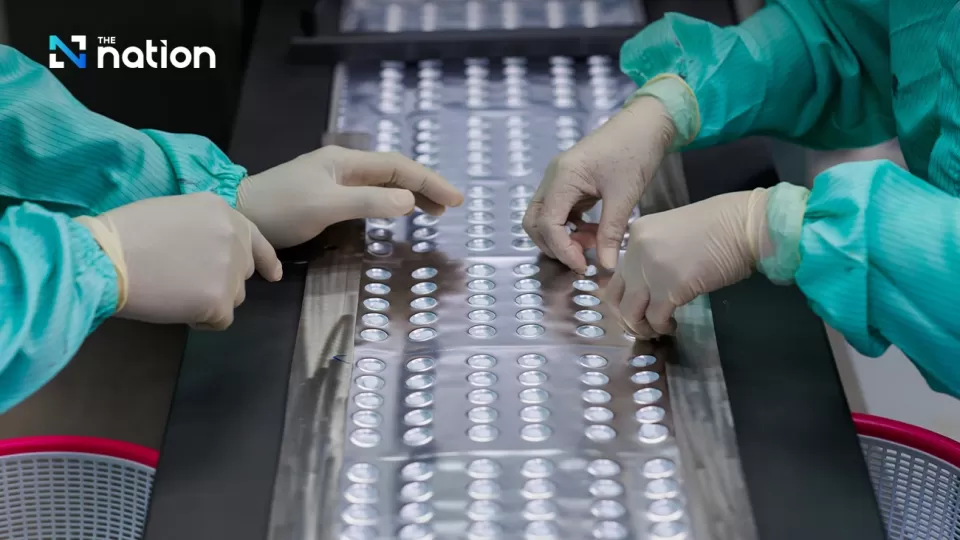March 26, 2024
BANGKOK – Their comments came in response to the announcement that “CPHI South East Asia 2024”, ASEAN’s leading pharmaceutical event, will be held at the Queen Sirikit National Convention Centre in Bangkok from July 10 to 12.
While praising the event as a platform for Thailand’s pharmaceutical and healthcare industries to demonstrate their potential as a medical hub of Asia, Greater Pharma and T.MAN Pharmaceutical pointed out big obstacles to achieving that aim.
One major challenge, they said, is forging a strong domestic medicine manufacturing base on which the country can rely.
Drug imports still account for at least 65% of the total pharmaceutical market in Thailand with only 35% produced domestically, according to recent data.
Furthermore, the majority of locally produced drugs are ready-made or derived from downstream drug manufacturing where innovation is absent. The rest are generic drugs manufactured as copies of original drug formulas, or prototype drugs from foreign countries whose patents have expired.
Upstream drug production of newly discovered medicines, as well as the production of intermediate drugs or raw materials, is still extremely rare in Thailand.
Innovation is a missing pillar in Thailand’s ambition for medical hub status, said Prapol Thanachotipan, CEO of T.MAN Pharmaceutical.
He emphasised the importance of research and development for T.MAN’s ‘s long-term growth, plus significant investment to upgrade operations to meet global standards and earn European certification.
Thai herbal goldmine.
He cited Propoliz Spray, T.Man’s flagship product for sore-throat relief.
Registered as a Thai-made herbal medicine, Propoliz has been well-received in foreign markets and is expanding its international reach, Prapol said.
It was an example of how innovation can tap Thai herbal extracts for use as Active Pharmaceutical Ingredients (API) originating in Thailand, he added.
API are the component of any medication that causes the desired health effects, he explained. They also help restore, correct, or modify physiological functions.
However, Thailand’s 225-billion-baht medecine market is dominated by drugs imported from abroad. Experts say the lack of domestic manufacturers jeopardises the country’s efforts to achieve drug security.
Greater Pharma managing director Chernporn Tengamnuay says the problem boils down to a lack of know-how to extract API, as well as economies of scale.
He cited China and India, the world’s two largest API exporters, as examples.
Domestic demand for APIs in these two Asian giants is so high that, even when international demand declines, manufacturers can continue to operate profitably.
Chernporn agreed with Prapol that Thailand should focus on extracting API from Thai herbs in order to create the distinct pharmaceutical products required to achieve medical hub status.
Like Prapol, he highlighted the importance of R&D in developing high-tech solutions, citing Greater Pharma projects such as the Pharmaceutical Stem Cell Bank and dust mite allergy vaccine.
The company’s dust mite allergy vaccine and skin prick tests came from collaboration with the Faculty of Medicine at Siriraj Hospital. It now intends to create an allergy-vaccine nasal spray as an alternative treatment.
Such advanced technologies enhance the company’s competitiveness, Chernporn said.
However, given that R&D and advanced technologies demand substantial time and resources, Chernporn and Prapol underscored the essential role of public sector support in ensuring the success of medicine producers.
Easing regulations while providing tax incentives, subsidies and other support is needed, they said.
They also emphasised the importance of sustainability, citing their own companies’ use of renewable energy, waste reduction, and wastewater treatment policies.
Looking on the positive side, they said pharmaceutical production in Thailand already meets international standards and has the potential to compete in the international market. All that’s needed for Thailand to become a global pharma hub is a little more government support and a strong commitment to technological development, they added.


